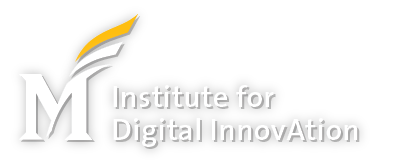The Frontiers of Computing in Health & Society virtual conference on September 20th & 21st was kicked off by President Washington who strongly supported the mission and reminded the audience that we need to be intentional in designing technologies and understanding their effects on society, the economy, and politics. The conference was attended by more than 100 participants from all over the nation.
The Frontiers of Computing in Health & Society conference centers around the fact that computation and data are reshaping not just scientific approaches to studying health and society, but also the human experience of living in society today. GMU recognizes the interconnection of these areas and is promoting research and training future leaders in addressing these complex societal challenges. “The increasing use of technology in many aspects of our lives means that we increasingly live in an algorithmically mediated society. Understanding the implications of this and making it a better world for all of us means we need to tightly integrate the computational and social sciences, as well as moral, ethical, and philosophical considerations, in both the design and analysis of these coupled socio-technical systems,” says Sanmay Das, Professor of Computer Science in the GMU School of Computing.
The theme for the first day was “AI, Social Justice, and Public Policy.” Social systems are increasingly embedded within computational platforms that mediate daily human activity. The speakers and panelists discussed approaches to providing theoretical and practical solutions to significant problems at the nexus of AI, social justice, and public policy. The agenda featured a keynote talk and Q&A with Rediet Abebe of UC Berkeley, a panel discussion on “AI for Social ‘Good’: Case Studies and Ethical Considerations,” lightning talks, and a panel on “AI and Public Policy.”
The theme for the second day was “Computational Systems Biomedicine” and was kicked off by Provost Mark Ginsberg who discussed how Mason’s new initiative leverages our existing biomedical research strengths in bioengineering, systems biology, chemistry, computer science, and statistics and how transdisciplinary research can contribute to the economic growth of Virginia. The second day featured a keynote talk, a panel discussion on “Frontiers of Computing at the Cellular and Molecular Scales,” a panel discussion on “Frontiers of Computing with Clinical Data,” lightning talks, and a panel discussion on “Computing Across Multiple Scales.”
Computational methods have been investigated in biology and medicine for decades, and provide powerful tools for knowledge integration and for providing insights about mechanisms. But it is challenging to utilize computation to explain an individual’s disease progression starting from cellular and molecular processes. “We know that disease trajectories are not only determined by biology and genetics, but also by social determinants of health that disproportionately impact marginalized communities. There is a need to develop new computational approaches and longitudinal data that can provide insight into these complex dynamic interactions between physiological systems and environmental and societal factors to understand and truly realize the vision of precision medicine” says Siddhartha Sikdar, Professor of Bioengineering in the GMU Volgenau School of Engineering.
“These topics are of interest to a diverse array of individuals, many of whom come from marginalized communities and are acutely aware of how computing can be used to enhance or oppress communities. We hope this conference and subsequent actions can showcase Mason as an exemplar in the areas of research and representation around these topics and for these individuals. These “frontiers” are about showing up in a way that acknowledges our past and positions us for the inclusive and equitable future
we believe in,” says Christopher Carr, the Chief Diversity Officer at the Dean’s Office in the College of Engineering and Computing.
“We hope Mason will be central in the study of this area going forward, leveraging the exciting developments in the Northern Virginia area, TTIP, and our strengths in both computation, public policy, and the social sciences,” Das said.
To learn more about the conference, click here.
This Frontiers of Computing in Health & Society conference is sponsored by the following GMU organizations: the Center for Adaptive Systems of Brain-Body Interactions, the School of Computing, the Volgenau School of Engineering, the Institute for Digital InnovAtion, the Jimmy and Rosalynn Carter School for Peace and Conflict Resolution, the Schar School of Policy and Government, and the College of Science.
For more information or with any questions, please contact the organizers:
Siddhartha Sikdar – [email protected]
Sanmay Das – [email protected]
Christopher A. Carr – [email protected]
Christopher A. DiTeresi – [email protected]
Kammy Sanghera – [email protected]

